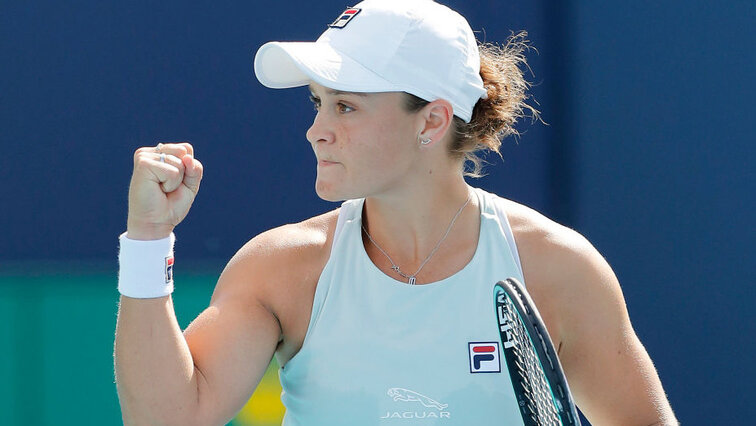Mental match preparation: Three steps to be cool and relaxed in a game
Preparation is half the battle. Tennis insider Marco Kühn has summarized the most important steps for you.
by Marco Kühn
last edit:
May 26, 2021, 11:26 am

The grip tape is freshly wound. The tennis bag was finally tidied up and packed properly. The match season can come, if it weren't for the head.
Many club players chase forehand winners in series over the net in training. When it comes to honor and the tournament match begins, a blockage in the head usually disturbs this series. You don't want to lose, so you play safer. Which then ends up in fearful tennis on the court.
The brute forehand from training is then just a gentle breeze that blows harmlessly over the net. In this article I want to give you a few ideas on how you can improve your inner game. To do this, we don't train your forehand, but your tolerance for frustration. Our common goal today: You go into your next match with a clear plan and a healthy attitude.
Let's go.
1) Establish a match plan
I used to have a lot of plans before I walked on the court. I wanted to make few mistakes, but I wanted to be aggressive when the situation allowed it. In addition, the first surcharge should come as if on order. My game should be varied and surprising.
Similar to how it is difficult to maneuver a fully packed shopping cart, tennis cannot be played for granted even with a full match plan.
Take two to a maximum of four elements that you want to implement in your match. For example:
1) Less Unforced Error
2) Constantly hint at the weakness of the opponent
3) Check off errors quickly; don't get upset about it
Don't over-pack your backpack. Keep your game idea simple, don't ignore the opponent's game and stay flexible.
2) Adjust expectations
The greatest pressure comes from ourselves. We want to show ourselves that we can play great tennis. In addition, our coach, acquaintances, friends and family would rather see us pulling away the place as winners.
If the balloon is filled with too much air and the pressure becomes too high, it will burst. I don't think much of having no expectations at all on the pitch. Then you lack the tingling sensation. But you need this to be able to concentrate better.
A mindset could be:
"I don't expect to win and play every rally perfectly. But I expect from myself that I give everything and keep my heart on the pitch - even if it doesn't go well!"
3) The chaos mindset
How fantastic it would be if you could fully control every stroke in a rally. Unfortunately, tennis is not a sport for control freaks.
One of the most important mental qualities you can acquire as a tennis player is your tolerance for frustration. A match always consists of different dynamics, which also constantly alternate. A brisk 3: 1 lead can be turned into a 3: 4 within nine minutes.
How do you deal with ups and downs like that? Are you angry? Are you losing your focus Does such a change affect you emotionally? Can you make good tactical decisions when you are emotionally troubled?
Many players go into a match with the mindset that they can control this "chaos". It's like walking into battle with a fire-breathing dragon armed with a plastic fork.
My idea for you:
Don't try to control the chaos. Learn to feel comfortable in the chaos of a match.
You play two matches. One during your rallies and one between rallies. In the future, don't just train your forehand, which will bring you great points during the rallies.
Also practice controlling your emotions so that you can become a champion between rallies as well.
